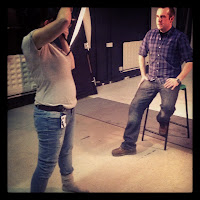What is Organisational Development (OD)?
Academically there is no conclusive answer to this, with there being many definition and sumnations. There is a depth of research and practice but with this seems to come a certain degree of confusion. However as definitions go, I quite like the one give by Rainey Tolbert & Hanafin:
"The goal of organisation development, is to enhance organisational effectiveness by attending to both human and organisational needs."
Theory behind OD
Theories that underpin OD go back as far as the beginning of the 20th century and has routes in areas such as science, social science, and psychology to name a few. There are 5 main schools of thought that underpin OD,
Complexity Theory, Systems Theory and:
Lewin's Change Theory (1947)
- Unfreeze - getting prepared for change.
- Change - The change stage is a transition not an event
- Freeze (re-freeze) The stage where change systems are accepted as the norm once again.
This model is still relevant today in some cases, although due to its iterative process may not suit the speed of modern change.
Action Research Theory - Learning Theory (1944)
- Diagnosis
- Planning
- Implementing (action)
- Evaluation
Change is driven by the members of the process in this theory, which is an important part of engagement and creates traction.
Appreciative Inquiry (AI)
AI is a verbal science highlighted in the 1980s. The first and most important difference between AI and problem solving is the questions it asks. This is a glass half full approach to strengthen the organisation and build on its current potential posing questions such as 'what is working well'. AI should be used as a lever to ignite postive attitudes and approaches to OD.
The Link between OD and Change Management
The sun and the wind...a story that shows that no matter how hard you push, you can't force change on someone.
Change will only come when there is compelling evidence that to make the change puts you in a better place than you are in now.
Change management can occur with one or more people, team, group but OD looks at all the forces working and impacting on the organisation as a whole. OD looks at the causes of problems rather than using symptomatic approach.
When an OD practitioner will want to make changes within the culture of the organisation rather than just make changes to individual or team behaviours. Successful change involves transforming the way the organisation thinks, it takes into account the culture of the organisation, the beliefs and attitudes of the members. Suggestions made by an OD practitioner will be made to help engender a culture where people believe in the organisations purpose, want to work hard for it, believe in the leadership and focus. This will result in change being managed effectively as people will be open to OD and change management.
A quick look at OD intervention process:
- Entry contracting - Establish point of contact and understand inter relationships within the buesiness, particularly strategic alliances. What does the organisation hope to get from the intervention?
- Data collection - Use of forced neutrality. Looks at readily available data, annual report, P&L accounts, customer feedback etc. Speak to data owners and try to find out what is not reported.
- Data Analysis - Analysis of data collected. There should be no preconceptions about the changes required before the analysis
- Feedback - Feedback initial findings to highlight the issues affecting the organisation.
- Action Planning - Identify the actions that will take place to make the situation better at the various layers of the organisation: Individual, interpersonal, intra group, inter group, bounded system level, system network.
- Action taking - Use of 'quick wins' may ensure committment to carry out longer term strategies.
- Evaluation - Measures of success or failure in terms of alpha, beta, gamma etc.
OD - Tools and approaches
- Cultural assessments
- Working with emotions
- Diversity
- AI
- Left side/Right side Focus
- Organisational Learning
There are a number of management models and tools to assist organisational design and change. Becoming familiar with what is available and applying the relevant ones to address the issues of your organisation is about knowing your staff and where you are at and having disciplined approach to seeing it through.















